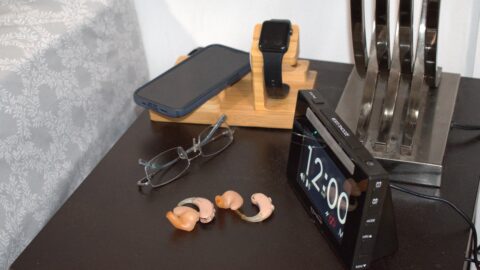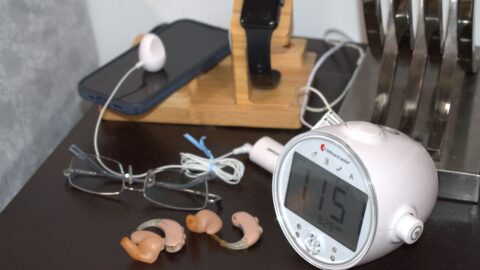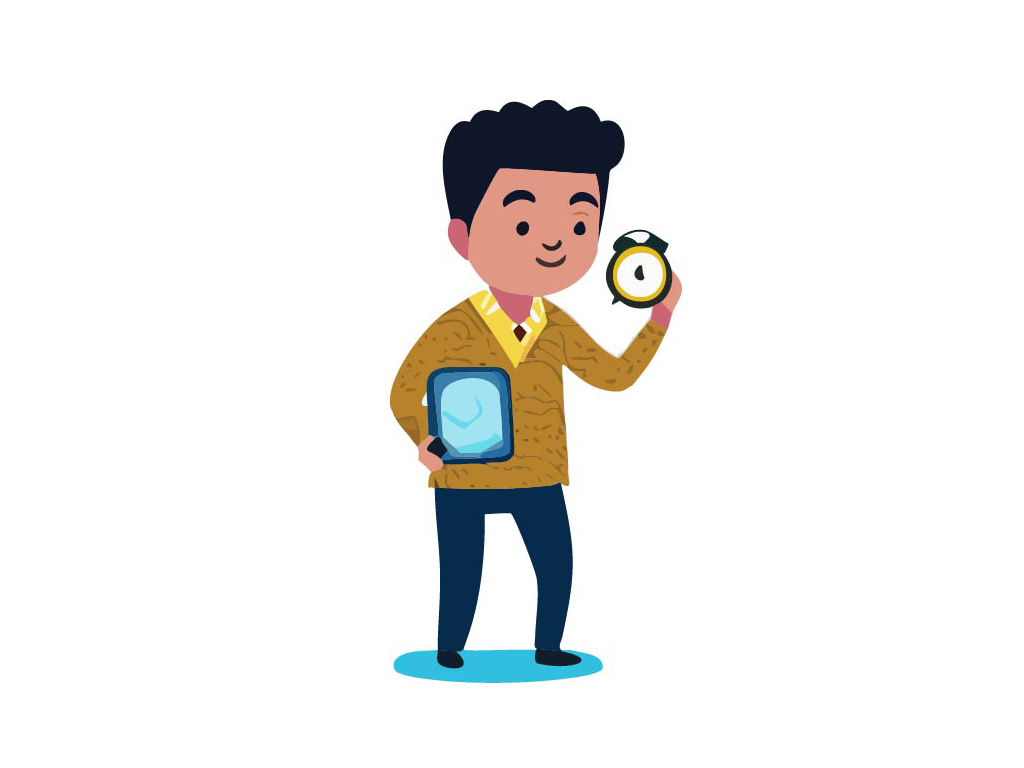Top Alarm Clocks for Deaf & Hard of Hearing
If you need to wake up on time but don’t want to wear your hearing aid or cochlear implant to bed, you’re not alone. Even if you can hear a little in one ear, it can be hard to hear your alarm clock, especially if your good ear is on the pillow. Luckily, there are alarm clocks for the deaf and hard of hearing that use other ways to wake you up.
These special alarm clocks use three methods to get your attention:
- Loud Sounds: Very loud alarms for people who can still hear some sounds.
- Flashing Lights: Bright lights that flash to wake you up.
- Vibration: Bed shakers that vibrate under your pillow or mattress.
Why Are Alarm Clocks for the Deaf and Hard of Hearing Expensive?
Some alarm clocks are simple and cheap. They help you get up for school, work, or appointments. But others are part of a bigger system that does more than just wake you up. These can connect to your smoke alarm, doorbell, phone, baby monitor, or weather alerts. This makes them important, especially for safety—like hearing your smoke alarm at night without your devices.
Compare 3 Popular Alarm Clocks for the Deaf and Hard of Hearing
Note: This post contains affiliate links, which means you can click on the product or services and decide to purchase it, I may receive a commission at no extra cost to you. All recommended products and services are based on my positive experience with them.
1. Serene Innovations CA360Q Sereonic Alert Clock

Pros:
- Has bright LED lights
- Cheapest of the three options
- Small and doesn’t take much space on your nightstand
- Easy-to-read screen with high contrast colors
- Has a USB charger for your phone
- Dual alarms for different wake-up times
Cons:
- You need to buy the bed shaker separately
- Needs an extra receiver to connect to a smoke alarm
- Only comes with a one-year warranty
2. Bellman Symfon 1380

View on Amazon
Pros:
- Comes with a 2-year warranty
- Easy to use—no need to pair accessories like smoke alarms
- Simple switches make setup fast
- Includes a bed shaker
- Fewer false alarms since all parts are made to work together
Cons:
- Most expensive of the three
- Only has a single alarm
- You have to buy smoke alarms or kit made by this company
- Be sure to buy the 1380 model (expandable system) and not the 1370 (just the clock)
- No USB charger included
3. Sonic Alert HomeAware II Signaling Hub

View on Diglo
Pros:
- Works with regular smoke alarms
- Big, easy-to-read screen
- Dual alarms for two wake-up times
- Has a USB charger for your devices
Cons:
- Takes up a lot of space on your nightstand
- Comes with a one-year warranty
- Has a bright strobe light, which might trigger seizures in some people
- Lots of menu settings that can be tricky to adjust
- You need to buy the bed shaker separately
Final Thoughts
Picking the best alarm clock for the deaf and hard of hearing depends on what you need and how much you want to spend. If you want something simple and cheap, the Serene Innovations CA360Q is a good choice, but you might need to buy extra parts. Yet, if you want a system that works smoothly with fewer false alarms, the Bellman Symfon 1380 is a great but pricey option. However, if you need a flexible system that works with standard smoke alarms and has dual alarms, the Sonic Alert HomeAware II could be right for you, but it takes up more space and can be tricky to set up.
No matter what, think about whether you just need an alarm clock or a full system to help keep you safe and connected when you’re not wearing your hearing devices. Alarm clocks for the deaf and hard of hearing can make a big difference in your daily routine and safety.
Sign up for our mailing list to be first to know when a new post is ready with more helpful tips and advice to help care for hearing aid.

